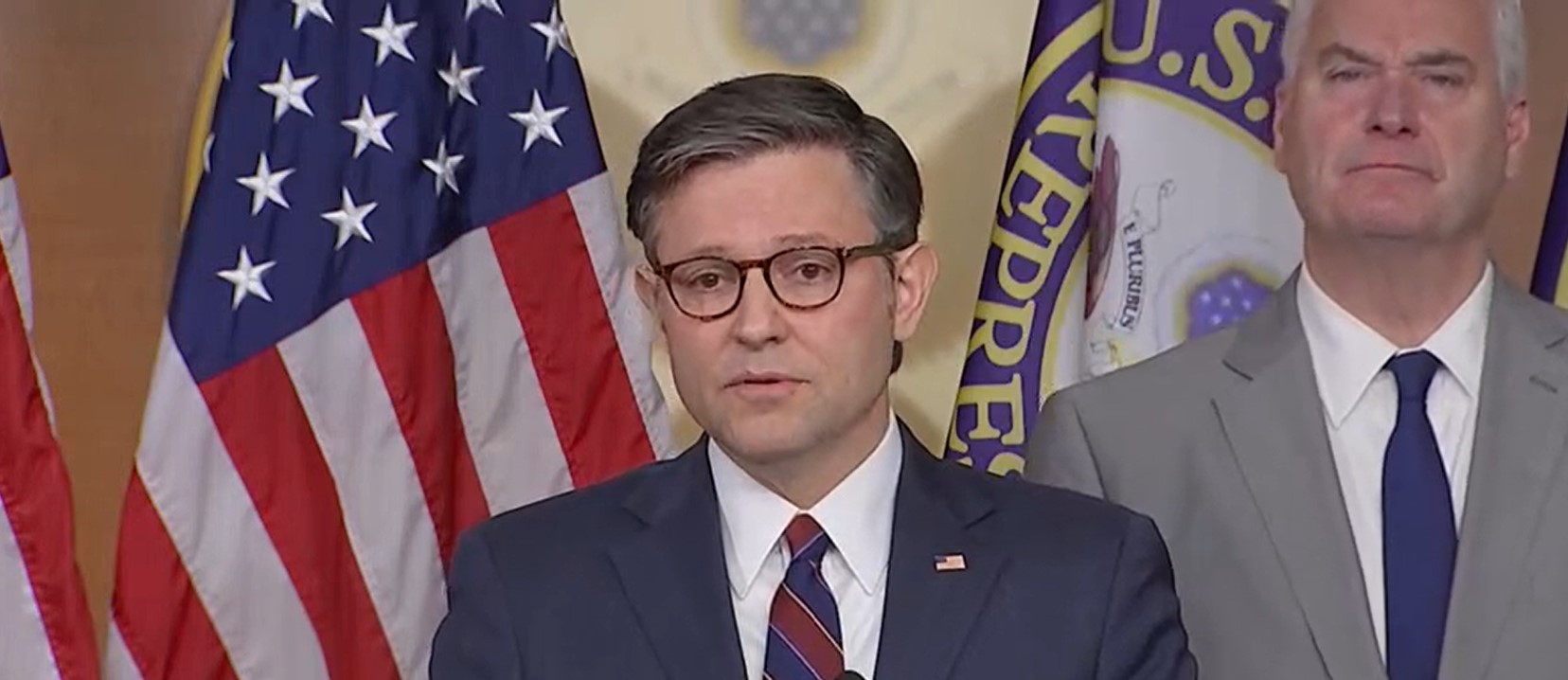Commentary: Big Tent Ideas
J.D. FOSTER: Can Republicans Save America’s Budget Before It’s Too Late?

Screen Capture/CSPAN
Republicans gained the House majority promising to pass all 12 annual appropriations bills on time. Then the House left for the August recess having passed only five. A month will remain before the next fiscal year when they return from recess. But none of the other bills is likely to pass.
Budget trainwreck, anyone?
In the House’s defense, the Senate has passed none of the appropriations bills and is even less likely to act after the recess.
So, if you are a House Republican, why bother to pass an appropriations bill if the Democrat-run Senate won’t? You can’t go to conference with a non-bill. You can’t negotiate with the White House when the other side doesn’t have the ante to sit at the table.
The die was cast months ago that 2024 would be another year of continuing resolution (CR) dramas starting on or about Oct. 1.
If they follow tradition, the first CR will push them past the election and Thanksgiving. Democrats and Republicans will then consider cutting a deal, but the easier course will be to pass a CR into 2025. Bet on the easy course.
The usual suspects on the far right may create problems initially, but eventually even they will get the joke. Pass a CR into 2025. Trump will be president again and Republicans will control the House and Senate, they will be told and now seems likely. Then we can cut spending and maybe even cut taxes, the extremists will enthuse.
By the way, the debt limit kicks in January 1, so the pressure to act will be severe, especially as the usual “extraordinary measures” probably will not last beyond March.
So, a short debt limit extension is likely despite a lot of grumbling. An extension to June 1 should suffice to meld future debt limit pressures with the work on the budget.
And what budget work would that be? No matter how well Republicans fare in Senate races in November, they will still fall short of the 60 votes needed for cloture and so they will still have to wrestle with Senate Democrats under the usual rules. Senate Democrats won’t go along with spending cuts which means Republicans will have to fall back on the budget resolution and reconciliation process to pass their agenda with only 50 votes.
And now the punchline: If House Republicans are in the majority and can exercise some self-discipline; if Senate Republicans control and can pass a budget resolution; and if President Trump listens to his advisors to apply pressure only as needed while avoiding the sweet temptation to toss monkey wrenches… if all this, then Republicans can achieve some real progress driving the train toward the land of responsible budgeting.
To be clear, it is a big train they are trying to run. According to the CBO, federal spending will approach $7 trillion in 2025. Just to achieve a sustainable deficit will require cutting about $1 of every $5 spent excepting net interest.
They won’t do this all at once, but they have to take a really big first step. Simple reality: falling short means raising taxes. It’s not politics. It’s simple math.
Oh, and they have to do all this while raising the debt limit again, preferably to at least Jan. 1 of 2027.
Republicans will only get one first, best shot at cutting spending, slashing budget deficits, and advancing their agenda. If they fail, then they will own the resulting trainwreck all the way to the caboose.
J.D. Foster is the former chief economist at the Office of Management and Budget and former chief economist and senior vice president at the U.S. Chamber of Commerce. He now resides in relative freedom in the hills of Idaho.
The views and opinions expressed in this commentary are those of the author and do not reflect the official position of the Daily Caller News Foundation.
(Featured Image Media Credit: Screen Capture/CSPAN)
All content created by the Daily Caller News Foundation, an independent and nonpartisan newswire service, is available without charge to any legitimate news publisher that can provide a large audience. All republished articles must include our logo, our reporter’s byline and their DCNF affiliation. For any questions about our guidelines or partnering with us, please contact [email protected].

